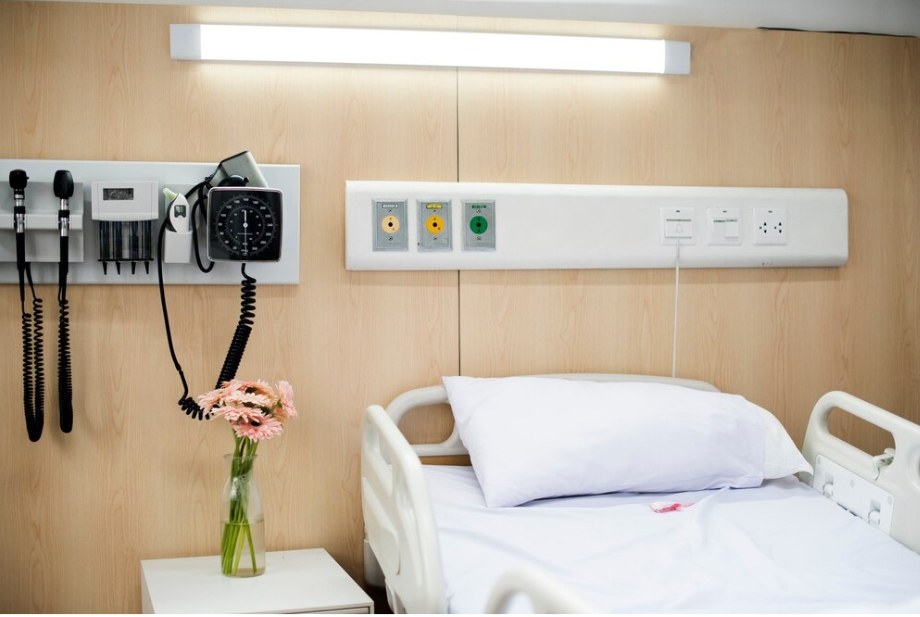Caring for elderly individuals often requires special accommodations to ensure their comfort and safety. One critical element in eldercare, particularly for those with limited mobility or chronic health conditions, is the bed they sleep in. Electric hospital beds offer a range of features that make them an ideal choice for the elderly, providing both caregivers and patients with convenience, ease of use, and enhanced safety. Epachois Hospital Beds -Full Electric Home Hospital Beds
In this guide, we will explore electric hospital beds for sale, their key features, benefits, and important considerations when buying one for an elderly individual. We will also address common questions that arise when selecting the right hospital bed for elderly care at home.
What Are Electric Hospital Beds?
Electric hospital beds are advanced versions of traditional hospital beds, equipped with motorized controls that allow users to adjust the height, head, and foot sections of the bed. These beds are designed for people who need long-term care, have limited mobility, or suffer from chronic conditions that require frequent bed adjustments for comfort and medical care.
Electric hospital beds provide the convenience of being adjustable at the push of a button, which is especially beneficial for elderly individuals who may not have the physical strength or ability to manually adjust their bed.
Types of Electric Hospital Beds
There are three main types of electric hospital beds:
- Full Electric Hospital Beds: These beds offer complete electronic control, allowing the user or caregiver to adjust the head, foot, and height of the bed with a remote or control panel. Full electric beds are ideal for elderly individuals who require frequent position changes and assistance with getting in and out of bed.
- Semi-Electric Hospital Beds: In these beds, the head and foot sections can be adjusted electronically, but the height of the bed must be adjusted manually. Semi-electric beds offer a balance between convenience and affordability.
- Adjustable Electric Beds: These beds are similar to electric hospital beds but are often more aesthetically pleasing, as they resemble regular beds. They are suitable for elderly individuals who want both comfort and a more homely feel.
Benefits of Electric Hospital Beds for the Elderly
Electric hospital beds offer several advantages that make them a valuable investment for elderly care:
1. Enhanced Comfort
One of the primary benefits of electric hospital beds is the ability to customize the bed’s position. For elderly individuals who may suffer from conditions like arthritis, chronic pain, or respiratory issues, being able to elevate the head or foot of the bed can significantly improve comfort. The ability to adjust the height of the bed also makes it easier for individuals to get in and out of bed, reducing strain on joints and muscles.
2. Improved Safety
Electric hospital beds often come with safety features like adjustable side rails, which can prevent falls and injuries. These rails are particularly useful for elderly individuals who may be prone to rolling out of bed during the night or have difficulty getting in and out of bed independently.
In addition, the ability to lower the bed to its lowest position makes it safer for individuals to get in and out of bed without the risk of falling. Caregivers can also raise the bed to a comfortable working height, reducing the risk of injury when assisting the patient.
3. Ease of Caregiving
Electric hospital beds are a great tool for caregivers, as they make it easier to assist elderly individuals with daily tasks such as dressing, eating, and bathing. The height adjustability of the bed ensures that caregivers can perform these tasks without straining their back or putting themselves at risk of injury.
For bedridden individuals, being able to reposition the bed regularly can help prevent pressure ulcers (bedsores) by distributing weight evenly and reducing pressure on sensitive areas of the body.
4. Independence for the Elderly
Electric hospital beds empower elderly individuals to maintain some level of independence. With the use of a remote control or panel, they can adjust their position in bed without having to call for assistance every time they want to sit up or lie down. This can greatly enhance their quality of life and sense of autonomy.
Key Features to Look for When Buying an Electric Hospital Bed for the Elderly
When shopping for an electric hospital bed for elderly care, there are several features to consider to ensure that the bed meets the patient’s specific needs:
1. Bed Size and Weight Capacity
Electric hospital beds come in various sizes, including twin, full, and bariatric models. It’s important to choose a bed that fits comfortably in the room where it will be placed while also providing enough space for the patient to move comfortably. Bariatric models are designed to accommodate heavier individuals and offer a higher weight capacity.
2. Adjustability
Ensure that the bed offers full adjustability, including head, foot, and height adjustments. This allows the patient to find the most comfortable position for sleeping, reading, watching TV, or eating. Some electric beds also have preset positions, such as the Trendelenburg and reverse Trendelenburg positions, which can provide additional therapeutic benefits.
3. Side Rails
Safety is a primary concern when caring for elderly individuals, and side rails can provide an additional layer of protection. Look for beds with adjustable or removable side rails to prevent falls and make it easier for caregivers to access the patient when necessary. Some side rails can be locked in place to provide extra security.
4. Mattress Options
The mattress that comes with the bed is just as important as the bed itself. Many electric hospital beds come with pressure-relieving mattresses, which are essential for elderly individuals who are bedridden or spend extended periods of time in bed. Look for mattresses that offer both comfort and support, such as memory foam or alternating pressure mattresses.
5. Ease of Use
The controls for adjusting the bed should be easy to use, especially for elderly individuals with limited dexterity or strength. Remote controls with large, easy-to-press buttons are ideal. Some beds also have control panels on the side rails, making adjustments even more accessible.
6. Durability and Warranty
Electric hospital beds are a significant investment, so it’s important to choose a bed that is built to last. Look for beds made from high-quality materials and backed by a manufacturer’s warranty. A good warranty will cover both the frame and motor, ensuring that any mechanical issues are addressed without additional cost.
Where to Buy Electric Hospital Beds for the Elderly
Electric hospital beds can be purchased from a variety of sources, including:
- Medical Supply Stores: Local or online medical supply stores often carry a wide range of electric hospital beds. These stores can offer expert advice on the best bed for your needs and may provide delivery and assembly services.
- Direct from Manufacturers: Some companies specialize in hospital beds and sell directly to consumers. Buying directly from the manufacturer can sometimes result in lower prices and more customization options.
- Online Retailers: Many major online retailers carry electric hospital beds, offering a range of brands and price points. Be sure to check customer reviews and product specifications before making a purchase.
- Used Beds: If you are on a budget, you may consider purchasing a used or refurbished hospital bed. Be sure to inspect the bed thoroughly and ensure that it meets all safety standards before bringing it into your home.
Things to Consider Before Buying
Before making a purchase, there are several key factors to keep in mind:
1. Space Requirements
Measure the room where the bed will be placed to ensure that it will fit comfortably. Remember to account for any additional equipment, such as an overbed table, bedside commode, or wheelchair. The bed should have enough clearance on all sides to allow for easy access and movement.
2. Power Source
Electric hospital beds require a power source to operate, so ensure that there is an electrical outlet near the bed’s location. Some beds come with battery backup systems in case of a power outage, which is particularly important for patients who rely on frequent bed adjustments.
3. Mobility Needs
If the elderly individual needs to be transported within the home, look for a bed with locking wheels. This will allow the bed to be moved easily from one room to another while ensuring that it remains securely in place when needed.
4. Maintenance
Electric hospital beds may require occasional maintenance to ensure that the motor and other electronic components function properly. Check the manufacturer’s guidelines for maintenance requirements and be sure to follow them to prolong the life of the bed.
Conclusion
Electric hospital beds offer a range of benefits for elderly individuals, enhancing comfort, safety, and independence. Whether you’re caring for a loved one at home or looking to improve your own quality of life, investing in a high-quality electric hospital bed can make a significant difference. By considering the patient’s specific needs, space requirements, and the bed’s features, you can find the perfect bed to ensure comfort and ease of care for years to come.
FAQs
1. Are electric hospital beds covered by Medicare or insurance?
Yes, Medicare and some private insurance plans may cover the cost of an electric hospital bed if a doctor deems it medically necessary. Be sure to check with your insurance provider to determine what is covered.
2. Can electric hospital beds be adjusted by the patient?
Yes, electric hospital beds come with remote controls that allow the patient to adjust the bed’s position without assistance, making them ideal for individuals who want more independence.
3. How much space do I need for an electric hospital bed?
Electric hospital beds are typically larger than standard beds, so you should ensure that the room has enough space for the bed and for caregivers to move around it. It’s also important to account for any additional medical equipment.
4. Can I rent an electric hospital bed instead of buying one?
Yes, many medical supply companies offer rental options for electric hospital beds, which may be a more affordable option for short-term use. https://www.epachois.com/






